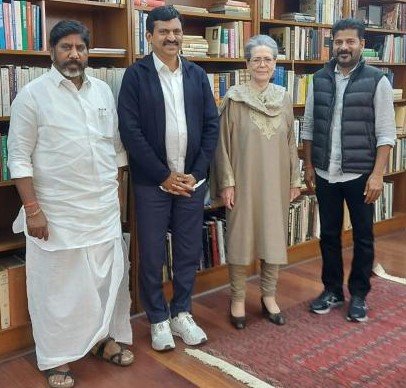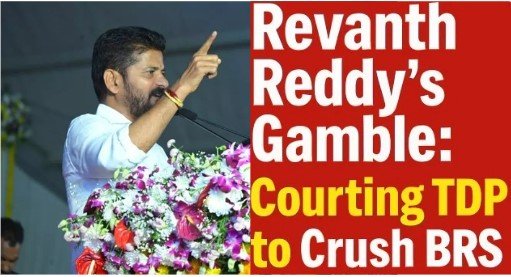
For a party long caricatured as a house divided against itself, the Telangana Congress has surprised both critics and rivals by staying afloat and functional, defying the expectations of an imminent collapse predicted by its opponents. The Bharatiya Rashtra Samithi (BRS) and other opposition groups had often speculated that the Congress would implode due to internal infighting before it could mark significant milestones under Revanth Reddy’s leadership. Yet, the party has managed to hold its ground, raising questions about what factors have contributed to its resilience in the state.
How Congress Defied Predictions of Collapse
Historically, the Congress has been characterized by internal dissension and rivalries. Telangana, with its unique political landscape, has been no exception. The party’s state unit is a mosaic of former leaders from various political outfits, often holding conflicting ideologies and priorities. Infighting, counter-allegations, and factionalism have plagued its functioning for years, leading many to believe that its newfound momentum under the new leadership would be short-lived. However, these assumptions have so far proven unfounded.
New Leadership: A Unifying Force
Revanth Reddy’s elevation to the position of Chief Minisiter and Mallu Bhatti Vikramarka as Deputy Chief Minister marked a turning point. Despite initial skepticism, the duo has managed to rally disparate factions within the party under a cohesive vision. While Revanth launched a blitzkrieg against the BRS with an aggressive campaign style, Bhatti Vikramarka has focused on grassroots mobilization, and their ability to connect with younger voters had reinvigorated the Congress image. Furthermore, their strategic alignment with senior leaders and former rivals within the party has created a semblance of unity.
Strategic Cohesion and Issue-Based Politics
One of the key reasons the Telangana Congress has remained intact is its strategic focus on issue-based politics. The party has effectively highlighted governance lapses and alleged corruption under the BRS government. By presenting a united front on issues such as unemployment, farmers’ distress, and public infrastructure, the Congress has shifted the narrative away from internal squabbles. This collective focus has minimized opportunities for factionalism to resurface.
The Role of National Leadership
The Congress high command has also played a significant role in maintaining unity in the Telangana unit. Regular interventions, conflict resolution mechanisms, and a clear delegation of responsibilities have ensured that local leaders feel supported and valued. The high command’s efforts to provide a stable platform for leaders like Revanth Reddy to operate have contributed to the state unit’s cohesion.
Rivals’ Missteps and BJP’s growing presence
Ironically, the external pressure from rival parties has also galvanized the Congress in Telangana. Persistent attacks from the BRS, often targeting the party’s internal dynamics, have forced the Congress to close ranks. Additionally, the BJP’s growing presence in Telangana has provided a common adversary, further compelling the Congress to prioritize unity over discord.
Grassroots Mobilization and Public Perception
A notable factor in the party’s staying power is its renewed focus on grassroots mobilization. The Congress’s outreach programs, rallies, and public campaigns have bolstered its perception among voters. This has not only helped consolidate its base but also given leaders a reason to work together toward shared electoral goals.
Internal Unity: Key Leaders Stepping Up
Unity within the Telangana Congress has been bolstered by the efforts of senior leaders who prioritized party interests over personal ambitions. Deputy Chief Minister Mallu Bhatti Vikramarka, a legitimate aspirant for the top post in the Congress government, has played a pivotal role in keeping the government functional and free from dissent. By prioritizing party unity over personal strategies, Vikramarka has emerged as an anchor figure within the state unit.
Other senior leaders such as Thummala Nageswara Rao, N. Uttam Kumar Reddy, Ponguleti Srinivas Reddy, and D. Sridhar Babu have also demonstrated a commitment to collective success. By focusing on their respective portfolios and contributing to the government’s performance, these leaders have reinforced the importance of teamwork. Their actions underscore the idea that the Congress’s collective strength is the key to its survival and success.
Conclusion
While the Telangana Congress remains a coalition of diverse and sometimes conflicting interests, it has managed to stay intact against all odds. A combination of strong leadership, strategic focus, and external pressures has kept the party functional and relevant in the state’s volatile political arena. As it continues to build its narrative and gear up for future electoral battles, the Congress’s ability to defy expectations could set a template for its operations in other states as well.


